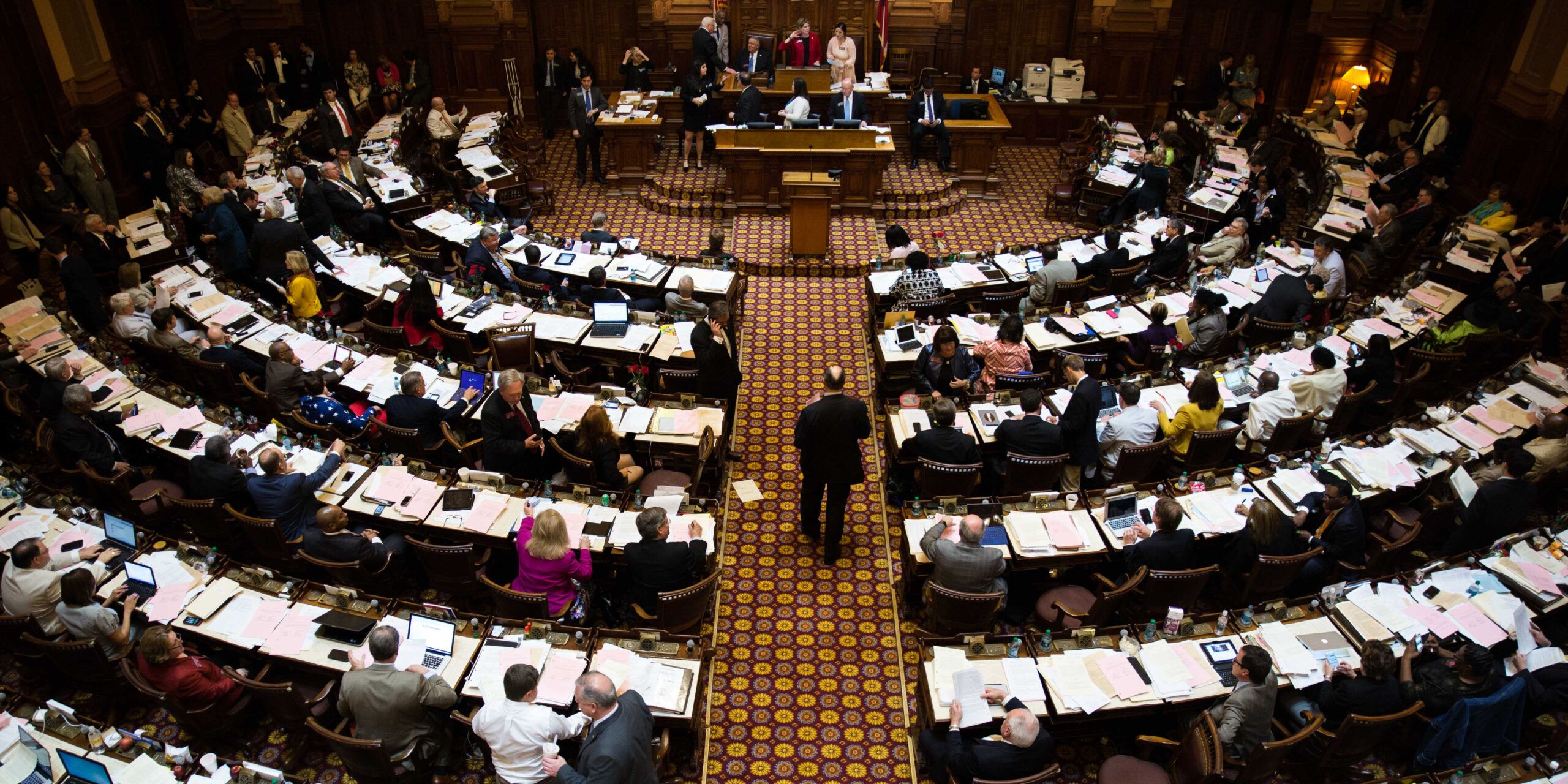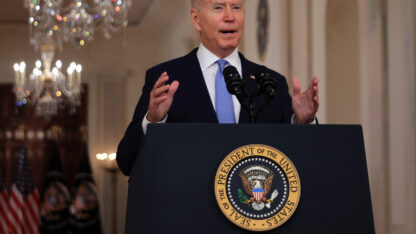Ga. GOP Struggle With Number Of Religious Exemption Bills

House members work during the House’s session on the final day of the 2015 legislative session, Thursday, April 2, 2015, in Atlanta. By law, Georgia’s General Assembly meets for 40 working days each year. Any bills not approved by each chamber by midnight are dead for the year. (AP Photo/Branden Camp)
Branden Camp / Associated Press
There are now a total of six bills in the Georgia Legislature all meant to protect some form of religious freedom.
In an election year, the issue has the state Republican Party divided on how to appeal to Christian conservatives and business interests.
“We have to balance everyone’s rights,” says Rep. Kevin Tanner (R–Dawsonville). He’s the sponsor of a bill supporters call the Pastor Protection Act. It affirms a clergy’s First Amendment right to refuse to marry a same-sex couple.
But Tanner is also sponsoring a more controversial bill that would allow businesses to deny service to same-sex couples.
“It’s specific that you cannot be required to provide goods or services for a religious ceremony,” he said.
That idea caused trouble in the past with business leaders in the state and isn’t likely to go anywhere. It may be redundant, but it shows lawmakers are listening to Christian conservative voters.
House Speaker David Ralston said he only supporting the Pastor Protection Act.
“I think it’s important that we find a measure that addresses concerns of Georgians, but also, may give us some opportunity to come together,” he said.
But there are even more bills, and coming together could be tough.
A group of six Democrats and Republicans have a proposal on voluntary prayer in schools. Another proposed bill would protect religious nonprofits that don’t want to work with same-sex couples.
There’s also two separate Religious Freedom Restoration Acts, or RFRA, designed to keep state government from interfering in religion.
“We are still, of course, in the Bible Belt,” Gov. Nathan Deal said. “And I think we have to be accommodating to their views as much as possible. Without, at the same time, creating a situation that Georgia’s going to be regarded as a state that allows discrimination at the sanction of the state.”
But Deal’s also fully aware of the staunch opposition from Georgia’s business community.
A report from the Metro Atlanta Chamber of Commerce last fall said that passing last year’s proposed RFRA legislation, which stalled in the Legislature, could lead to the area economy taking a more than $1 billion hit.
Representative Ed Setzler (R–Acworth) isn’t buying it.
“You know, people say Ed, perception is reality. I tell ya, you know, reality is reality.”
Setzler is the sponsor of a RFRA bill, which he said wouldn’t lead to discrimination against LGBT people.
“The claim of discrimination against LGBT … it’s a sad [and,] I think, largely groundless [claim],” he said.
Setzler may have a point, at least when it comes to the courts, Emory law professor Sasha Volokh said.
But, he says, laws can have a broader affect.
“People might have the impression that the law allows for discrimination [when] it doesn’t. And they’re doubly wrong because the law does not justify it, but in addition they were always able to discriminate against gays,” Volokh said.
In other words, there’s no Georgia law to protect LGBT people from discrimination.
So, it could happen even without RFRA, except in cities like Atlanta, which have their own laws. And a RFRA law would have little effect on discrimination in a courtroom.
Volokh warned that, the more bills filed, the more discrimination may seem sanctioned by the state.
To figure out which of the six bills lead to a compromise, former Georgia State political lecturer Steve Anthony suggested looking to Speaker Ralston and the Pastor Protection Act.
Anthony said that bill could work for people both inside and outside the Legislature, and possibly quiet the contentious conversation.
“Put something out there that meets them halfway, so to speak, and then [that] prevents the urgency of having to deal with the other issue,” he said.
But the effort to get six different bills to “meet halfway” could bring even more attention to an issue that many wish would just disappear.
9(MDAxODM0MDY4MDEyMTY4NDA3MzI3YjkzMw004))







